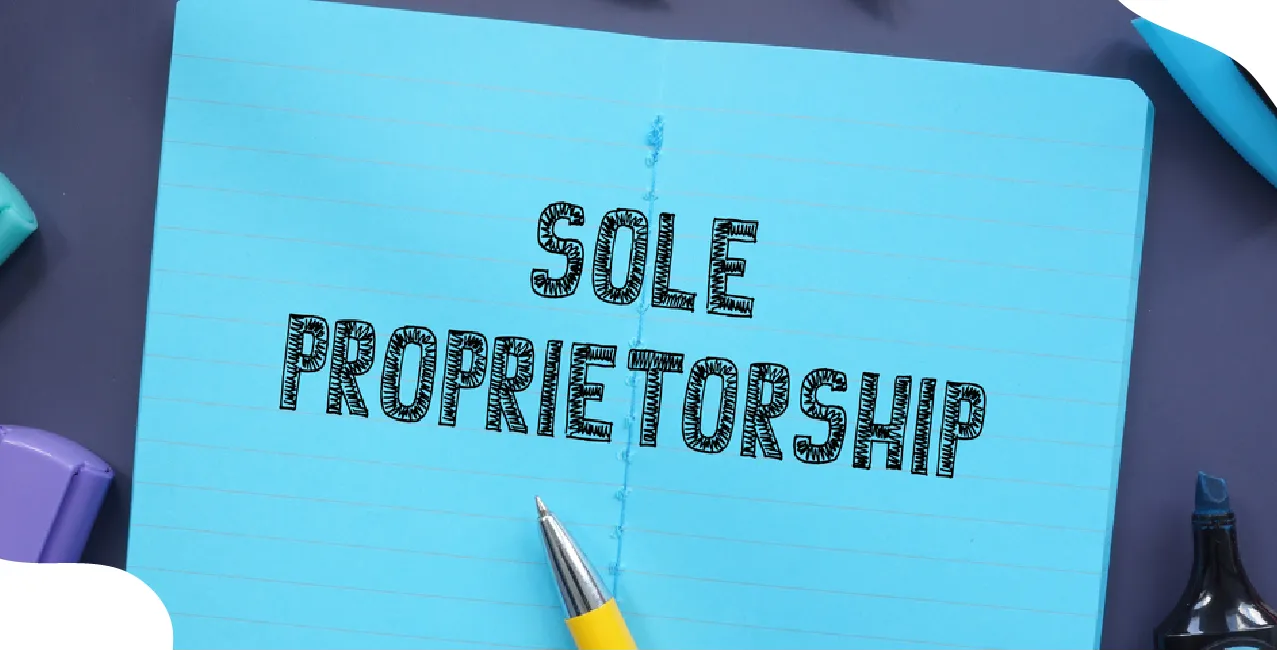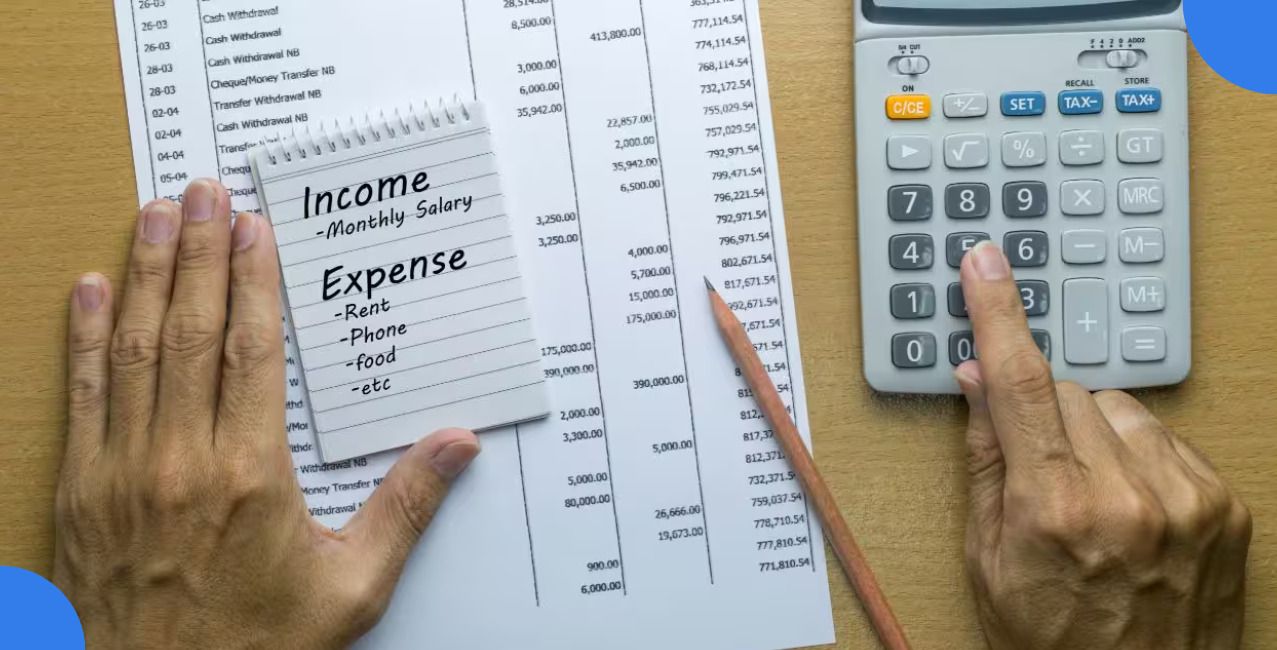What is a Sole Proprietorship? Features, Advantages & How to Register

Check Your Loan Eligibility Now
By continuing, you agree to LoansJagat's Credit Report Terms of Use, Terms and Conditions, Privacy Policy, and authorize contact via Call, SMS, Email, or WhatsApp
A sole proprietorship is a business owned and managed by one person. The owner is personally responsible for all profits, losses, and liabilities.
My cousin, Pooja, started her homemade pickle business with just ₹8,000. She didn’t register a company, hire a lawyer, or fill out a dozen forms. She just opened a shop, printed labels with her name, and started selling. In her first month, she sold 100 bottles at ₹120 each, earning ₹12,000.
In short, without even knowing it, she was running a sole proprietorship. You might be thinking, ‘situationship suna hai, se sole proprietorship kya hota hai?’ If you're someone selling art on Instagram for ₹12,000 or ₹120, baking cakes from home, or running a small repair shop under your name, chances are, you already are one too! ‘Malkin hi khe dein!’
This is just a brief on sole proprietorship. Let’s learn more about it and see how you can be ‘the malkin’ in this blog.
What is a Sole Proprietorship?
A sole proprietorship is the easiest way to start a business in India. It means the business is run and owned by just one person. There is no legal separation between the person and the business; they are the same in the eyes of the law.
This type of business is very popular among small shop owners, freelancers, and service providers because:
- It needs very little paperwork to start.
- It costs almost nothing to begin.
- You don’t need to register it like a company (unless required for tax or licences).
What Are the Features of a Sole Proprietorship?
A sole proprietor is not just any business owner. You could own a billion-dollar company and still not take home the full profit. In contrast, a Gen Z creator selling Taylor Swift-inspired bracelets on Instagram gets to keep every rupee she earns. ‘Kuch to baat hai sole proprietor banne mein’
Let’s take a closer look at the key features in the table below.
These features explain why sole proprietorships are popular for freelancers, retail shops, and small service-based businesses. They are simple, flexible, and quick to launch.
Advantages of a Sole Proprietorship
Starting a small business? Here’s why being a sole proprietor can be good for you.
Easy to Start
You don’t need to register your business as a separate company. Most of the time, just a local license or GST registration is enough. You don’t need a lakh of loans, even ₹10,000 is enough for a good start
Low Setup Cost
There’s no need for big legal or professional fees. If you're a freelancer, tutor, or someone selling products from home, this setup saves you money. This has reduced your budget from ₹50,000 (average) to ₹500.
You’re the Boss
You control everything, from pricing, marketing, and timings to decisions. You don’t need partners, board meetings, or permissions for anything. It’s your empire, rule the way you want!
Keep All the Profits
Whatever you earn is yours to keep. You don’t have to share it with co-founders or investors. Just pay the salaries on time. ‘Aap bhi khush, aapke karamchari bhi!’
Simpler Taxation
The business income is added to your personal income. You pay tax according to individual slabs. There's no need to file corporate taxes.
Read More – What is Partnership? Definition, Types & Features in Business
Disadvantages of a Sole Proprietorship
While it’s easy and affordable, there are a few serious downsides that you should be aware of.
Personal Risk (Unlimited Liability)
If your business owes money or fails, you have to repay from your own pocket. This can even lead to selling your bike, savings, or property.
Hard to Raise Money
Banks and investors prefer registered companies. As a sole proprietor, it’s tough to get business loans or attract big investors.
Business Ends with You
If something happens to you, any illness or accident, your business stops. It doesn’t continue on its own like a company would.
Less Trust from Clients or Vendors
Many big companies or government tenders ask for a registered business name. Sole proprietors can be seen as less professional.
How to Register a Sole Proprietorship?
If you are thinking of running a bakery, freelancing, or doing online sales, don’t look for a partner if it’s not necessary. Be a sole proprietor. Here's how you can get started:
Pick a Business Name
Choose something catchy and unique. It could be your own name or something creative like “The Chai Cart” or “Pixel Studio.”
Make sure it’s not already in use by someone else. You can check online or on MCA/government portals. If you want to protect the name, you can also apply for a trademark (optional but useful).
Get Your PAN and Aadhaar Ready
Since a sole proprietorship is tied to you, your personal PAN and Aadhaar will be used for all tax and legal filings. If they’re not linked yet, do that first, because it’s needed for ITR and GST filings later.Open a Business Bank Account
Go to any bank and ask to open a current account in your business name.
You’ll need:
- PAN & Aadhaar
- Business address proof
- A registration certificate (like Shop & Establishment)
This account keeps your business money separate and makes accounting easier.
Register Under the Shop & Establishment Act
If you’re running your business from a shop, office, or co-working space, this registration is mandatory in most states. Apply through your local Municipal Corporation or Labour Department. It usually takes 3–5 days.
For example, in Haryana, any business running from a shop, office, or co-working space must register under the Punjab Shops & Commercial Establishments Act.Register for GST (If Your Turnover Crosses the Limit)
If your revenue exceeds ₹20,00,000(or ₹40,00,000 for goods), you must register for GST.
Even if you're under the limit, voluntary registration can help you:
- Claim input tax credit
- Deal with clients who prefer working with GST-registered businesses. You can do this online at www.gst.gov.in.
Udyam/MSME Registration
This step is optional but extremely useful. Here’s a quick table to explain why MSME (also called Udyam) registration helps, even if it's not compulsory:
See, even the government is supporting you! Rare, but that’s the reality. You can register for free at udyamregistration.gov.in.
Also Read - How to Register a Company – Step-by-Step Registration Process
Apply for Any Other Licenses
Depending on what your business does, you might also need different kinds of licenses. We have listed down some of the important ones:
- FSSAI license (for food businesses)
- Trade license (from your local municipal body)
- Professional Tax registration (in some states)
- Import Export Code (IEC) if you're doing international trade
Documents Required to Register a Sole Proprietorship
Before you begin the registration process, keep these documents ready. They help prove your identity, your business, and where you operate from.
This list works for most states and banks. Some local bodies might ask for extra documents like an NOC from the landlord or a self-declaration form. Always check your state or municipal website for exact details.
Conclusion
If you want to start a small business without spending much, a sole proprietorship is a great choice. You control everything, earn all the profit, and need only basic documents like Aadhaar, PAN, and a bank account. Just be aware, there’s no legal separation between you and the business, so you’re responsible for losses too. Follow the steps given above to register!
Frequently Asked Questions
1. Can I convert my sole proprietorship into a private limited company later?
Yes, it can be converted legally by registering and transferring assets.
2. Can a sole proprietorship have employees?
Yes, you can hire staff and must follow labour laws.
3. Is there a minimum capital requirement to start a sole proprietorship?
No, there is no minimum capital requirement to start a sole proprietorship.
4. Can I run multiple businesses under one sole proprietorship?
Yes, but keep separate records for better clarity.
5. Do I need a digital signature certificate (DSC)?
Not required unless applying for specific licenses online.
Other Informative Pages | |||
About the author

LoansJagat Team
Contributor‘Simplify Finance for Everyone.’ This is the common goal of our team, as we try to explain any topic with relatable examples. From personal to business finance, managing EMIs to becoming debt-free, we do extensive research on each and every parameter, so you don’t have to. Scroll up and have a look at what 15+ years of experience in the BFSI sector looks like.
Subscribe Now
Related Blog Post

Salaried vs. Self-Employed: Who Gets a Personal Loan Faster in 2025?

Too Many EMIs? What to Do When Monthly Payments Become Unmanageable

Post Office Customer Care Number: Helpline & Support
Recent Blogs
All Topics
Contents
Quick Apply Loan
Consolidate your debts into one easy EMI.
Takes less than 2 minutes. No paperwork.
10 Lakhs+
Trusted Customers
2000 Cr+
Loans Disbursed
4.7/5
Google Reviews
20+
Banks & NBFCs Offers
Other services mentioned in this article





